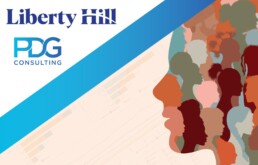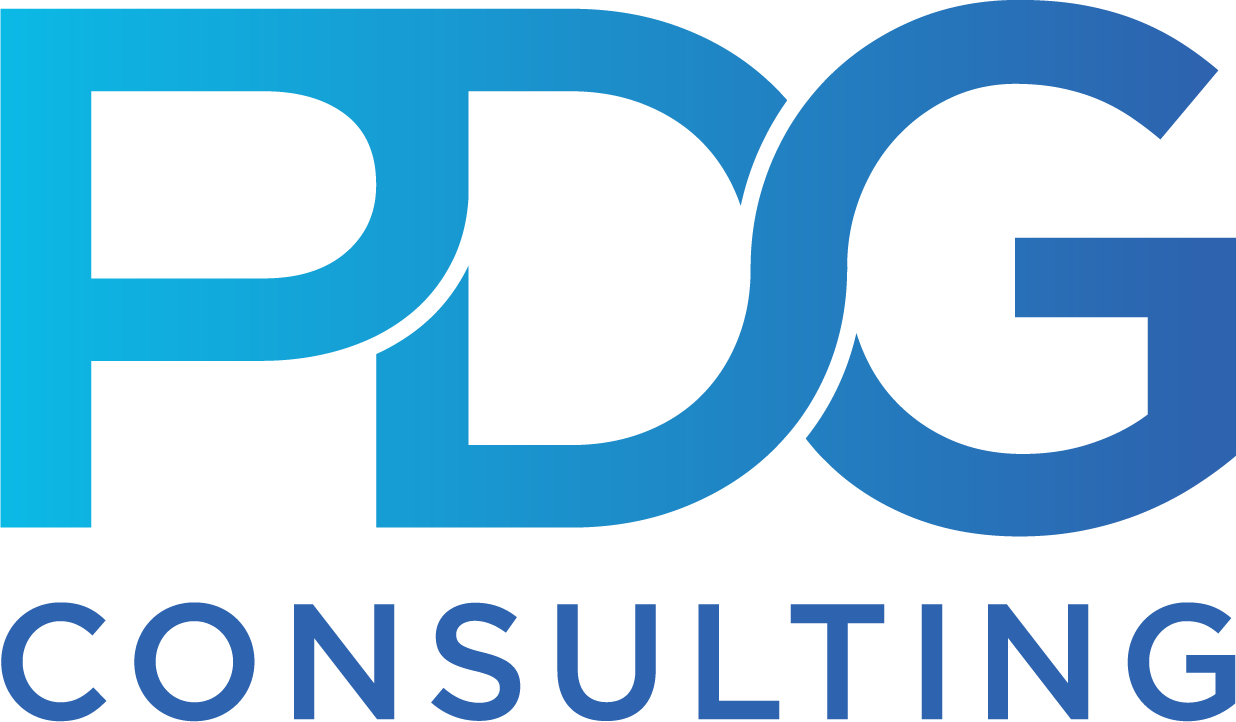Liberty Hill and PDG: Visualizing Justice through Data

Liberty Hill has a clear mandate: The organization “will not rest until society provides justice and equality for all.”
The road to social equity, however, can be fraught with potholes, detours, and dead-ends. Changing the momentum of established processes requires Herculean effort paired with unwavering commitment — and the right technology helps too.
This is the intersection of Liberty Hill and PDG Consulting. Driven by the civil unrest seen in early 2020 including the murder of George Floyd, PDG’s leadership team knew the company needed to do something to make a difference but didn’t know where to start so they reached out to Liberty Hill, connected over an info session, and the company made a donation.
But it wasn’t enough. PDG wanted to do more. “We as a firm are very passionate about causes,” said T. Kurera, VP of People and Culture. “We found Liberty Hill, provided a donation, and then asked what more can we do to help through the donation of our time and expertise.” The answer? An in-depth dashboard visualization project.
The Challenge: Reducing Youth Incarceration
LA has one of the highest youth incarceration rates in the nation. “We lead the nation with the largest juvenile justice system,” said Tommy Morris, Youth Justice Program Associate at Liberty Hill. “We have the highest budget probation department and have incarcerated more youth — youth that are disproportionately black, brown, and indigenous.”
What’s more, the LA youth incarceration system is chronically understaffed. As noted by the LA Times, this has resulted in more fights among youth in carceral settings along with increased use of force by detention officers. Liberty Hill is committed to reducing the number of incarcerated youth by redirecting funds to alternative social programs that benefit both youths themselves and the community at large.
Changing the system, however, is no easy task.
The Solution: Telling the Data Story with Purpose-Built Tools
There is data available on the incarceration rates of young people, the offenses they’ve been charged with, the length of their sentences, and relevant demographic data such as age, race, and gender.
The challenge? Finding, collecting, and curating this data to tell a story. In partnership with Liberty Hill, PDG created a data visualization tool based on LA police arrest data. “PDG helped us collate 10 years of arrest data,” said Morris. “We could see what youth were being arrested for and why, what the data booking was including race, ethnicity, gender, and in what part of town these arrests were being made. This data helped us understand the story, and tell it to our partners.”
By creating a way for Liberty Hill to easily access and analyze LA police datasets, PDG made it possible for the organization to deliver data-driven stories that didn’t simply call for social change but backed up the need for immediate action with specific arrest patterns and clear demographic and geographic trends.
The Results: Writing a New Narrative for LA Youth
By combining Liberty Hill’s passion for activism with PDG’s data visualization dashboard, this tool is now part of a movement that is investing in organizing and advocacy to help realign up to $150 million for youth development and close 15 youth prisons in LA.
He also highlighted the impact of COVID-19 on arrests and incarceration. While data revealed that the pandemic accelerated a 50% drop in arrests and a 60% reduction in incarceration, it also showed a significant disparity in the race of those being arrested. “Twenty years ago there were 5,500 youth incarcerated in LA,” says Morris. “Today, the total amount is lower but the disparity is higher, especially for black girls.”
The result is a need for a new narrative, one that relies on data to showcase the problematic nature of current LA youth incarceration practices and provides a path for improvement. While the shift away from current arrest and incarceration practices will be slow and steady, using clear and reliable data provides a critical foundation for building the next generation of positive youth-development practices — practices that begin with diversion and reconciliation rather than punishment and incarceration.
What's Next? Creating the Liberation Fund
As noted by Lisa Small, Director of Youth and Transformative Justice at Liberty Hill, PDG is also helping the organization take on new projects. “PDG is supporting us in creating the Liberation Fund by providing essential data and analysis through visualization tools that bring into focus the disparity faced by girls of color and gender expansive youth,” said Small.
The Liberation Fund will provide the opportunity and funding for community-based organizations who center the unique experiences of girls and GE youth to co-create strategies that meet these young people where they are while simultaneously addressing the system failures and practices that harm them.
By pursuing girls and GE liberation, this work will strive toward community-led solutions that achieve self-determination and agency outside of system involvement, freedom from violence, and access to education, economic, housing, and wellness resources while providing the conditions for girls, and GE youth to live with dignity.
Small noted that early analysis has already yielded interesting results. “Part of what came to the surface was that in this population, if you’re underage and you can’t consent, you can’t be arrested for sex work, but girls as young as 18 and 19 who we know are still developing into adults are being arrested as perpetrators when in reality they are survivors and should be treated as such.”
Data visualization is helping Liberty Hill pinpoint the data needed to tell this story and fuel campaigns that aim to end the practice of arresting and incarcerating youth and putting in its place investments in youth development and community safety.
Liberty Hill and PDG: Partners in Progress
PDG is committed to working with Liberty Hill for the long haul. The company recognizes that social justice doesn’t happen overnight and wants to provide Liberty Hill with the tools, technology, and expertise needed to make a difference and change the landscape of youth incarceration and unjust persecution in LA.
A recent statement from Liberty Hill makes it clear that the feeling is mutual. “We are so appreciative of the incredible work PDG did on the data visualization project and we’re excited for the many ways it will impact our youth justice work. We will absolutely have client success stories for you in the future, as the Dashboard illuminates such important data that will inform the social justice work of Liberty Hill and our community partners for years to come.”
Put simply? Social justice and equality don’t happen instantaneously. They require the tireless work of dedicated individuals. Progress can be bolstered, however, when organizations have the tools and technology they need to capture relevant data and tell the real story.
Need help with a data visualization or data analytics project? Contact us for help today.
Latest
Proof of Concept: Facilitating the Future of M&E Enterprises in the Cloud
Technology,OTT,Media & Entertainment
February 27, 2023
For media and entertainment (M&E) enterprises, moving to the cloud offers many benefits in future-proofing their frameworks. Learn more from our software engineers about how to properly facilitate best practices for cloud computing in today's article.
Is Blockchain the next GPT?
January 30, 2023
Curious to know if Blockchain technologies is displaying all the signs of becoming the next GPT? Our Founding Partner at PDG, Brennan Binford, discuses the concept of Blockchain and what you should expect in the future of General Purpose Technology.
by Brennan Binford - PDG Consulting
Net Positive: Why Moving from Quickbooks to NetSuite Makes Sense for IPOs
January 12, 2023
For companies now in the process of preparing for their IPO, this valuation variability offers the perfect chance to assess current operations, identify potential gaps, and put the right tools in place to ensure investor confidence. Learn more about why making the move to NetSuite may be a net positive for IPO operations in this article



